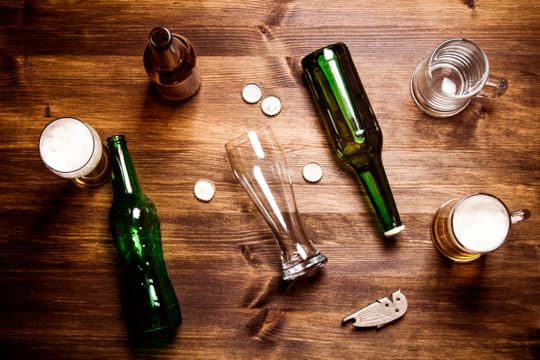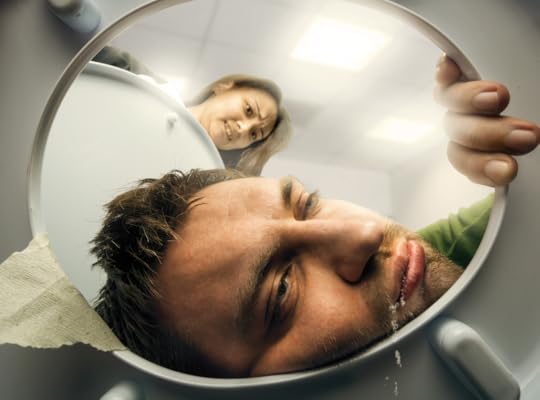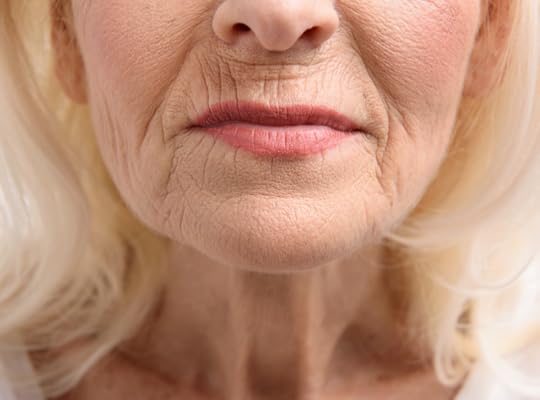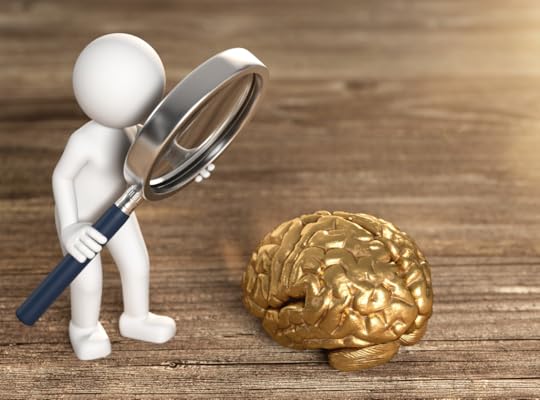Leslie Glass's Blog, page 241
September 10, 2019
Mac Miller Death: Man Charged With Selling Drugs
A 28-year-old Los Angeles man was arrested Wednesday and charged in connection with Mac Miller’s overdose death in September 2018.
According to federal court documents, Cameron James Pettit provided Miller, born Malcolm James McCormick, with counterfeit oxycodone pills that contained fentanyl two days prior to his overdose.
Pettit is being charged with one count of distribution of a controlled substance and faces a statutory maximum sentence of 20 years in federal prison.
Miller was found unresponsive in his Studio City home on Sept. 7, 2018. The LA County Coroner’s Office later said that his death was determined to be an accident and was caused by a combination of fentanyl, cocaine, and ethanol.
According to the documents, Miller texted Pettit days before his death asking for drugs. Pettit then agreed to bring the rapper oxycodone pills, cocaine, and Xanax and delivered them to Miller at his Los Angeles recording studio in the early hours of Sept. 5. This is when Pettit allegedly sold Miller counterfeit oxycodone pills that contained the opioid fentanyl, a drug that’s 50 times stronger than heroin.
The complaint alleges that Pettit supplied drugs to Miller for a period of several months.
The documents also show that Pettit sent Instagram messages to friends after Miller’s death saying, “Most likely I will die in jail,” and “I think I should probably not post anything … just to be smart.”
“Fentanyl disguised as a genuine pharmaceutical is a killer — which is being proven every day in America,” US Attorney Nick Hanna said in a statement. “Drugs laced with cheap and potent fentanyl are increasingly common, and we owe it to the victims and their families to aggressively target the drug dealers that cause these overdose deaths.”
On Wednesday, Thom Mrozek of the US Attorney’s Office told reporters there are two other people who are allegedly responsible for supplying Miller with narcotics who haven’t yet been charged. The investigation is also ongoing.
When asked if Pettit could eventually be charged with murder, Mrozek said he would not speculate on what he might be charged with in the future.
“As of right now, he faces one federal charge of distribution of controlled substances,” he added. “We’ll see how the investigation continues.”
This content was originally published here.
The post Mac Miller Death: Man Charged With Selling Drugs appeared first on Reach Out Recovery.
Brad Pitt: Alcoholics Anonymous was ‘safe space,’ helped with sobriety
Maeve McDermott USA TODAY
Published 9:41 AM EDT Sep 4, 2019
With starring roles in two of 2019’s biggest movies, “Once Upon a Time in Hollywood” and “Ad Astra,” Brad Pitt spoke to the New York Times about a particularly cathartic experience that contributed to his health and success this year, when he quit drinking and began going to Alcoholics Anonymous meetings.
“I had taken things as far as I could take it, so I removed my drinking privileges,” he said, before praising his AA group, which was comprised solely of men. “You had all these men sitting around being open and honest in a way I have never heard. It was this safe space where there was little judgment, and therefore little judgment of yourself.”
Despite his status as one of Hollywood’s most recognizable movie stars, Pitt shared that nobody in his group sold his stories – told to the other members in confidence – to the tabloids.
“It was actually really freeing just to expose the ugly sides of yourself,” he said. “There’s great value in that.”
Elsewhere in the interview, Pitt spoke about his discomfort with the superstar status of his early career, saying his life wasn’t “the lottery it appeared from the outside.”
“In the ’90s, all that attention really threw me,” he said. “It was really uncomfortable for me, the cacophony of expectations and judgments. I really became a bit of a hermit and just bonged myself into oblivion.”
Over time, Pitt says he gained perspective on how to handle his status in the public eye.
“Those dubious thoughts, the mind chatter, the rat in the skull — that’s comedy,” he added. “It’s just ridiculous that we would beat ourselves up that way. It doesn’t matter. I spent too much of life wrestling with those thoughts, or being tethered to those thoughts, or caged by those thoughts.”
Pitt’s big year follows a period of turbulence for the star. He split from ex-wife Angelina Jolie in September 2016, and he was accused, and later cleared, of child abuse allegations, with Jolie’s divorce papers citing the “health of her family” as the reason for the split.
Speaking to GQ in 2017 for his first major profile since the news of his divorce, Pitt shared that he was sober, joking that in his heyday he could “drink a Russian under the table with his own vodka.”
“I mean, we have a winery. I enjoy wine very, very much, but I just ran it to the ground. I had to step away for a minute,” he said. “I was a professional. I was good.”
Ranked: All the winners and losers in summer 2019 movies, from Brad Pitt to ‘Dark Phoenix’
Must-read: Angelina Jolie is every mom when dropping son Maddox off at South Korean college
Published 9:41 AM EDT Sep 4, 2019
This content was originally published here.
The post Brad Pitt: Alcoholics Anonymous was ‘safe space,’ helped with sobriety appeared first on Reach Out Recovery.
Understanding Anger and Addiction (video)
How do anger and addiction go together? We get this question all the time at The Clearing. They are related, and when you add stress and anxiety you get a toxic cocktail that causes many to numb out with substances and other diversions. Read more to understand how these all fit together and what you can do about it to stop the cycle.
Anger and Addiction
Everybody has anger. So why do anger and addiction seem to go together? Is anger some by-product of addiction and dependency? What we know is that any time we’re angry and we’re feeling anger, we know that underneath that anger there’s a hurt. There’s something that’s hurting us inside.
For those suffering from addiction or dependency, there’s a belief it’s not okay, for one reason or another, to express our anger. We cut ourselves off from that and it festers along with the original hurt episode or stimulus.
Anger Leads to Depression
Typically when we cut ourselves off from anger, we begin to feel depression. Depression is nothing more than anger turned inward.
Next, most of us don’t want to feel what hurts inside. That’s why it’s called that. Hurt is not pleasant. It’s something we’re wired to avoid. Similar to when we stub our toe and it hurts tremendously – this is the physical body’s way of telling us not to do that again and be careful with the toe so it can heal properly. The same hurting principles apply to emotional wounds.
To avoid the hurt, we’ll cut ourselves off from feeling that as well. Now, that we’re not going to feel our hurt and we’re not going to feel our anger, we have our emotions bouncing back-and-forth, just kind of slow bounce, up and down.
From Anger and Depression to Anxiety and Panic
This emotional bouncing up and down is what we call anxiety. We’re not settled.
a feeling of worry, nervousness, or unease, typically about an imminent event or something with an uncertain outcome.
As we’re on this cycle of suppressing anger and hurt and feeling anxious, the world of course can then intervene. It does for all of us, not only those with dependencies. The world introduces stress as a normal course of human affairs.
With stress added to anxiety, we’ve now moved into panic mode. The emotional bouncing back-and-forth accelerates and then we get panic. What do we do about all this? Well, right now we’re saying, “Man, I don’t want to feel my anxiety, my panic, my stress, my depression.”
So we use. Substances and other dependencies follow. For many of us, this is living on the edge.
Does this sound familiar?
Addiction and Dependency to Cope with Stress and Panic
The result is predictable. To avoid this emotional cycle and hurtfulness, I numb out.
I’m going to use.
Or I’m going to get really busy so that I don’t have time to feel.
Or, I’m going to create some kind of dysfunctional relationship. That way, I can work on their issues instead of mine.
Or, I’m going to have a lot of sex because that’s a fun way to not address my anger and hurt.
Anger Hurt Loving Model
There is a way out of this cycle. We deal with situations like this all the time and use something called the “Anger, Hurt, Loving Model” to begin to address it.
The way out is to learn constructive ways to express our anger and to make it okay to feel the hurtful episodes and other emotional hurts. When we do that, we’re able to apply love to the parts inside that hurt and then we’re able to heal.
This may sound simple and maybe a bit corny, but it works. Most addicts and those with dependencies have deep, deep hurts that they’ve never fully dealt with and haven’t been in a secure enough place to apply real love and healing. This is what we call healing underlying core issues. We’ve seen this countless times and it’s breathtaking to see with our Participants.
We know that underneath hurt there’s loving. This is such a simple model in terms of how our emotions are built inside, but it’s very easy to get off-track and spin out of control.
This content was originally published here.
The post Understanding Anger and Addiction (video) appeared first on Reach Out Recovery.
Alcohol Quiz
Your alcohol IQ may come as a surpise. Alcohol is everywhere., but it’s a social drink with a dark side. There are 88,000 alcohol-related deaths every year and is the third leading preventable cause of death in the US. How much do you know about alcohol’s effect on you and others?
1
True or False: You can drink a fatal amount of alcohol before passing out

True
False
Correct!
Wrong!
True
If you're not paying attention to the amount taken in, it can cause many dangerous issues.
2
Binge drinking is

Twice as common in women than men
Twice as common in men than women
Three times as common in college than high school
Twice as common in high school than college
Correct!
Wrong!
Twice as common in men
But did you know that, according to CDC.gov, most people who binge drink are not considered alcoholics or alcohol dependent?
3
Which of the following is NOT a way to prevent binge drinking

Don’t drink that night
Avoid temptations such as drinking games
Keep a physical tally of how many drinks you’ve consumed through the night
Pregame before the party
Correct!
Wrong!
Pregame before the party
You have a drink or two before the party to "loosen up." Then, you head to the party/ event/ bar/ game and have a few more. They add up. Quickly.
4
Alcohol can stay in your system (including your hair) up to

One week
24 hours
Six months
Three months
Correct!
Wrong!
Three months
Yeah. Alcohol can stay in your hair up to three months after having a drink.
5
True or False: If your liver is healthy, it can process about one drink per hour

True
False
Correct!
Wrong!
True
If someone were to have one beer at a bar, it can take a healthy liver one hour to process it.
Alcohol Quiz
Created on 10 Sep 2019
Quiz result
You scored
Correct!
Share Your Result
Quiz result
You could use a little brush-up on your knowledge of alcohol
You scored
Correct!
It can be a dangerous substance and can easily be abused or misused.
Share Your Result
Quiz result
You need a little more studying
You scored
Correct!
Whether you’ve never had a drink, you’re well into your recovery, just beginning, or still drinking, you should know a little more about this substance. It’s legal, yes, but can still have such an impact on the body, brain, and behavior.
Share Your Result
Quiz result
Read a little more
You scored
Correct!
You know a little about alcohol but could use a little more information about it. You’re aware of what it can do to your body; however, maybe no one has told you about the differences between men and women when it comes to processing a drink.
Share Your Result
Quiz result
You only got two wrong
You scored
Correct!
Your basic knowledge of alcohol is pretty good, but maybe you’re unsure of the chances of binge drinking in men versus women or how long alcohol can stay in your system.
Share Your Result
Quiz result
You only got one wrong
You scored
Correct!
Keep up the good work on your studies. It helps to know more about how long alcohol can stay in your system.
Share Your Result
Quiz result
Fantastic
You scored
Correct!
You have a great understanding of basic alcohol facts. Great job!
Share Your Result
The post Alcohol Quiz appeared first on Reach Out Recovery.
Am I Enabling When I Help
People have many excuses for enabling, so it’s a really good question to ask yourself, have you ever said something like this: “Oh, he’s just had a hard day at work and needs to unwind with a few drinks.” Or maybe this, “My son is very sensitive, so I need to take care of that for him.” We take on the role of an enabler for many reasons and often aren’t aware that it’s a problem.
Helping Vs. Enabling
Enablers believe that pardoning the misbehavior of a loved one, or stepping in to fix something, is just helping out. And who wouldn’t want to help a loved one. A wife makes excuses for a drinking husband; a mother thinks she is helping by doing something for her child rather than having him do it for himself. When we’re enablers, we support poor choices and inhibit personal development in ones we love. We are constantly moving boundaries trying to facilitate their change. Ask yourself, Is it working.
I had a friend who really believed she was being a good wife by buying alcohol for her alcoholic husband. She made excuses when his drunken behavior was noticed by others. She saw this as loyalty. In reality she was enabling his drinking without consequence, and he ultimately died from alcoholism. This may sound like an extreme situation, but it is a result of the simple daily decisions we make to allow others to make poor choices, or in the case of the mother mentioned above, in not allowing others to make their own choices at all.
Generosity and acts of service are the hallmarks of an enabler, controlling is the dark side of that.
On one hand benevolence is the motivating factor for helping. On the other, is the fear of losing control. When we take on the choices of others as if they were our own, we control and we disable. We decide that our choice for them is better than the ones they make for themselves. Being an enabler is often an unconscious behavior, it is just something that we do. We slide into the role with nary a thought to the ramifications for our loved ones.
The solution empowers everyone.
It is far more empowering to stand back and be supportive of the choices of others – whatever they may be – than to direct their lives in the way that we think they should go. Enabling in a positive manner can come through support of loved ones’ decisions that allows them to take responsibility for their own actions and consequences. Empowerment for everyone is moving from “doing for” and “making excuses for” to allowing loved ones to experience their own personal development. It won’t always go well, but it is the process of growth that recovery requires.
co-written by: Kathleen Benzaquin
The post Am I Enabling When I Help appeared first on Reach Out Recovery.
September 9, 2019
This List Of Excuses For Not Drinking At Parties Will Make You Laugh
The sober culture seems to be growing. That means people attending parties may be less interested in picking up a beer and more interested in a can of soda. So, what are some fun, creative excuses you can use to avoid drinking?
1
I can’t afford to lose anymore brain cells

 Samantha Curreli at 04:01 pm September 09, 2019
Samantha Curreli at 04:01 pm September 09, 20191
2
You know, I’m feeling pretty wild; a late-night coffee sounds awesome

 Samantha Curreli at 04:01 pm September 09, 2019
Samantha Curreli at 04:01 pm September 09, 20190
The French philosopher Voltaire is said to have drank 50 cups of coffee a day. Because he ruled.
3
It makes me throw up and puking just puts a damper on things

 Samantha Curreli at 04:01 pm September 09, 2019
Samantha Curreli at 04:01 pm September 09, 20190
Alcohol is essentially a toxin, and so it can easily upset your stomach and cause you to vomit, particularly if you consume too much.
4
I would, but it reacts badly with my STI medication

 Samantha Curreli at 04:01 pm September 09, 2019
Samantha Curreli at 04:01 pm September 09, 20190
Alcohol doesn’t make antibiotics less effective, but consuming Alcohol — especially if you drink too much — might increase your chance of experiencing certain side effects.
5
I’m crazy without liquor, but thanks

 Samantha Curreli at 04:01 pm September 09, 2019
Samantha Curreli at 04:01 pm September 09, 20190
Evidence shows that people who consume high amounts of alcohol are vulnerable to increased risk of developing mental health problems and alcohol consumption can be a contributing factor to some mental health problems, such as depression.
6
Nah, my drug of choice is caffeine

 Samantha Curreli at 04:01 pm September 09, 2019
Samantha Curreli at 04:01 pm September 09, 20190
Research shows that caffeine can increase mental alertness at work or while studying and can enhance performance on certain mental tasks. In addition to alertness and mental performance, caffeine may also improve memory and reasoning in sleep-deprived people.
7
I’m good. Alcohol makes me pee a lot.

 Lindsey Glass at 04:01 pm September 09, 2019
Lindsey Glass at 04:01 pm September 09, 20190
“Alcohol is a diuretic,” says Professor Oliver James, Head of Clinical Medical Sciences at Newcastle University. “It acts on the kidneys to make you pee out much more than you take in – which is why you need to go to the toilet so often when you drink.” In fact for every 1g of Alcohol drunk, urine excretion increases by 10ml.
8
No thanks. It’ll give me wrinkles and I just figured out how to get rid of my acne.

 Lindsey Glass at 04:01 pm September 09, 2019
Lindsey Glass at 04:01 pm September 09, 20190
Just one night out drinking can dehydrate your skin to a point where wrinkles and fine lines become temporarily more noticeable, according to Carol Ann Goodman, a board-certified physician at Bella Vi Spa & Aesthetics in Indiana. It’s even worse for people who have naturally dry skin.
9
If my brain shrinks anymore, it’ll just roll around in my skull and that just sounds like a whole new kind of headache.

 Lindsey Glass at 04:01 pm September 09, 2019
Lindsey Glass at 04:01 pm September 09, 20190
Overall, the more alcohol consumed, the smaller the brain volume, with abstainers having a higher brain volume than former drinkers, light drinkers (one to seven drinks per week), moderate drinkers (eight to 14 drinks per week), and heavy drinkers (14 or more drinks per week).
10
If I drink, I can’t show off my killer dance moves.

 Lindsey Glass at 04:01 pm September 09, 2019
Lindsey Glass at 04:01 pm September 09, 20190
Larger amounts can cause dizziness, nausea, slurred speech, slow reflexes, sleepiness, impaired judgment, dehydration and a splitting headache the next day.
The post This List Of Excuses For Not Drinking At Parties Will Make You Laugh appeared first on Reach Out Recovery.
5 Tips To Overcome Fear And Shame
Shame seems to be at the heart of all addictions. We experience shame over the wounds of our early childhood traumas, our seemingly inherent weaknesses, inability to stop our disruptive life behaviors, and the extreme costs paid by our families and community for our unhealthy choices. Shame often worked overtime to suck the life right out of me. Shame attempted to keep me locked in an addictive cycle. For much of my life it was successful, but no more.
The Power Of Shame
Recently, I visited a recovery center, and I held an in-depth conversation with their executive director. We were discussing the power of shame that has held many of us captive. This was of prime interest to me as I have recently chronicled and published my own bout with shame in my book Resilient: My Journey to Wholeheartedness. The director’s response to my blame of shame was “Yes, shame is powerful, but fear may be even more insidious in keeping us chained to our addictive thinking.” I didn’t realize how insightful this was until I realized that overcoming fear was my next battle to wage.
Fear Is Bigger Than Shame
Fear reveals itself in my life as incessant mental gymnastics. This may be true for you as well. Fear starts in my mind and then all of my physical senses come under it supervision. I become immobilized to move forward for meaningful destinations as I am seemingly overwhelmed with thoughts of sabotaging myself so I won’t fail. Fear becomes my natural response to challenges and obstacles. I must pull back so I won’t get hurt again. Fear seemingly asks one question over and over, and then over again. It ask incessantly, What if…
They won’t accept me?
My idea is no good?
They won’t follow me?
This person exposes me?
I fail again?
I’m not good enough?
This constant torment just wears me out, and I want and need relief. Is this fear taunts you as well? Unfortunately, I have discovered the hard way that pornography nor food are the tools for my future relief. They comfort for a while, and then they turn on me like a pit bull. Being truthful, both of these weapons just make it worse. Your drug of choice may be different but reap the same results when succumbing to fear.
Recovery Is A Battle
Recovery is like waging a battle, one right after another similar to “whack-a-mole.” One mole is smashed and another rises up in a different spot. I smashed shame and now fear has reared its ugly head. Well, fear doesn’t know it yet, but it’s time for decline is rapidly approaching and here is how I am going to do it. My remedy for this consistent and familiar torment in the life of an addict is the 2nd step of 12 that declares “Let go and let God.” Do you know what it means? It means you can’t do it alone and need something to believe in that can take away your shame and burdens and pain.
5 Tips To Overcoming Fear
1. Face The Truth Of What Scares Me
Fear is my enemy. It is an enemy that wants to control me even daily. With God, you and I can defeat it lies. I will name it and allow light to invade its darkness.
2. Choose To Live Reflectively
I know by experience failure is not fatal, so there is nothing to actually fear. Whether I succeed or fail in an endeavor, I will be safe. I will practice mindfulness. I won’t reach out for my former DOC’s.
3. Remind Myself I’m On The Right Path
Paul Perez, a coach for Excellent Cultures, teaches that the risk zone (where fear resides to push us back to our norm of unhealthy comforting) is where all growth occurs in our personal and professional lives. So, that being true, when fear raises its ugly head, I will remind myself, I must be onto something good that is going to help me grow even stronger. Encountering irrational fear means I am on a good path.
4. Renew My Vow To Be My Best
I may have had my brain hard wired for fear through early adverse childhood experiences, but I will now choose to live with daily affirmations rehearsing my personal value, strength, hope and vision. I will intentionally renew my brain to become my very best. I am a man of power, love and soundness of mind. Fear will not be allowed to occupy a space any longer. I have power to choose differently. This is my cup of recovery. Why not let it be yours as well.
5. Accept My Life As It Is
A parked car can’t be steered. I will step out and accept life as it is, not as I wish it would be.
The post 5 Tips To Overcome Fear And Shame appeared first on Reach Out Recovery.
19 Symptoms Of Emotional Abuse For People In Denial
When substance abuse disorder enters our loved one’s life, denying their substance abuse and the emotional abuse that goes with it is never far behind.
Substance and alcohol use disorder (the new term for addiction) are now understood as a chronic relapsing brain disease that will not get better on its own.
For friends, lovers, and family members acceptance is tough. Our loved ones are denying their addiction and we are too. We think:
It’s not sooooooooooo bad.
It could be worse.
He/she is just having a bad week or a bad run of luck.
This kind of denial doesn’t occur with other chronic diseases. We find it easier to accept cancer, diabetes, heart disease.
Red Flags That You Are In Denial
At first your loved one may try to distract you from finding out about the addiction. They might employ manipulation tactics like:
Keeping you off base
Putting you on the defensive
Hurting your feelings for no reason
Making you over-react instead of think rationally
These constant barbs and arrows of a loved one’s bad or destructive behavior needs are actually forms of abuse. This kind of abusive behavior can also occur in people who are not using substances. There are plenty of controlling and narcissistic people among us who hurt others just to keep them in line.
With Substance Use Disorder, however, both abuse and denial of the abuse are a symptoms of the disease. Here are 19 symptoms of abuse. For every one, you may have many rationalizations of why it’s occurring or isn’t so bad.
Humiliating and embarrassing you
Constantly putting you down and then acting innocent, or saying you’re too sensitive
The silent treatment – refusing to communicate
Ignoring or excluding you
Cheating on you or having extramarital affairs
Being provocative with the opposite sex
Using sarcasm and an angry voice when talking to you
Being jealous for no reason
Being extreme moody and changeable
Constantly making fun of you and being mean
Guilt tripping you about things you should have done
Threatening “If you don’t____, I will_____
Making everything your fault. You, you, you…
Isolating you from your friends and family
Using your money and stealing from you
Keeping constant tabs on you: texting and calling on the phone
Threatening to commit suicide
Threatening to walk out of the relationship
Having more than one addiction, not only to drugs or alcohol but to pornography and other substances
Substance abuse often leads to these forms of emotional abuse. They create unbalance, fear and anxiety, even PTSD in loved ones. They are more than just words that can be explained away. When you stop denying the reality, you can take the necessary steps to regain control of your own feelings and life. This is imperative to start the healing process.
Also, be sure to tell someone you trust what’s going on. Abuse can only thrive in silence. If those you trust don’t believe you, seek professional help immediately. It’s also the perfect time to join a support group. Al-anon, and Nar-anon are support groups for people who have been hurt by addiction. Many people have found life-long friends there. Likewise, if you need help to deal with addiction and recovery, check out Recovery Guidance to see what resources are near you.
The post 19 Symptoms Of Emotional Abuse For People In Denial appeared first on Reach Out Recovery.
September 8, 2019
10 Ways To Banish Bad Habits
Bad habits. Who doesn’t have them? I’d even admit that I like some of my bad habits. I’m definitely in no rush to cure them. There are those, however, that are much more problematic than others. Those often need to be attended to before they cause real damage. But, let’s back up and start at the beginning.
What is a bad habit
A bad habit is a patterned behavior that has proven to be detrimental to the physical or mental health of a person.
What Causes Bad Habits in Recovery
Many things cause bad habits in recovery. To begin with, let’s remember that people in recovery are already starting with an addictive personality. An addictive personality usually includes character traits like impulse control problems, problems managing stress, and being drawn to deviant behavior and nonconformity.
Recovery can sometimes feel boring and that it’s a far cry from the exciting, sometimes dangerous, lifestyle of addition and alcoholism. Getting used to normal takes practice so it’s easy to stray in the beginning when life feels so mundane.
Some people also feel very stuck in recovery. That’s another feeling that addicts and alcoholics are unused to experiencing and can find very uncomfortable. This is an easy time to return to, or find new, bad habits.
Let’s not forget the other bad habits that form over the years
All the other bad behaviors. Just because someone has given up the drinking and using, doesn’t come close to meaning all the other bad behaviors automatically go away. Some people get sober to find they have other addictive behaviors with food, sex and love, money, shopping, gambling—you name it. But it takes time to be able to deal with everything and staying sober is enough of a challenge at the beginning. Many people wait until they have some solid, sober time before they begin working on other bad habits and that’s a good idea!
Lack of inspiration, motivation and growth mindset. Some people think that abstinence is the answer and there doesn’t need to be work done beyond that. That may work for some people, but it doesn’t necessarily create a fulfilling, healthy lifestyle. Making positive changes across the board in your life is what usually leads to a satisfying, healthy life. Keep striving to better in all facets of your life.
Accountability is something many people learn about in recovery. It’s definitely not something addicts and alcoholics are good at. When people get into recovery, they learn to look at their behavior and how it affects themselves and other people. If people aren’t taught about accountability and responsibility in recovery, if they aren’t observant and paying attention to what they are doing, they can fall right back into bad habits like eating too much junk food after a weight gain. Being observant and accountable is critical to keeping the bad habits at bay.
10 ways to banish bad habits:
Deal with bad habits one at a time: It’s important to deal with breaking one bad habit at a time. If you are trying to deal with too many things at once, you’ll get spread too thin and fall to temptation. Stay away from any temptations that feed into your bad habits: If going to the movies makes you want to have butter popcorn and candy and you’re trying to follow a diet to stop bad eating habits, don’t go to the movies at first. Use your common sense and don’t do activities that promote the bad behavior until you’ve got it under control. Learn your bad habit triggers: To change bad habits, you must understand why you do them and what triggers them. Record information whenever you feel the desire to do your bad habit or if you catch yourself already doing it. Write down how you felt, where you were, who you were with, and what you were you doing. Over time you can identify what triggers your bad habit. Make changes once you know your triggers: Once you begin to see the pattern of where, how, and why your bad habit urges arise, you can start to make changes. If you find that your triggers are happening every time you’re in a certain spot, it’s time to stop going to that spot. If you can’t fully the trigger like if you are feeling angry, then try the 20 Minute rule. This is where you tell yourself that even though a trigger has occurred, you’re going to give it 20 minutes to see if the urge goes away. Don’t Go Cold Turkey: While going cold turkey might work for some, it’s based on the emphasis of perfection. When you quit cold turkey and can’t do it this creates a feeling of defeat. Then instead of taking each day at a time, you decide that you might as well binge on your habit. This can cause you to take part in the habit more than you had before. Replace old bad habits with new good ones: If you do something when you are stressed, find a new healthy activity to do in place of the old one. This is not easy and takes practice, but it works. If you’re used to going to a bar after work for destress drinks, try finding a gym, sport, yoga, meditation class, whatever activity you can do to replace a bad habit with a good one. Mindfulness and meditation can be good for helping people come to grips with bad habits and overcoming them. If you have a meditation studio in your city, look at what classes they offer because they may have something just for this. If not, look on youtube or do some research to find an app or online guided meditation that will work for you. Journal: Write about it. Whatever it is you’re dealing with. Write about how you feel every day, write about your questions and concerns, write down reasons why giving up the bad habit will positively affect your life. Just keep writing. Using Affirmations can help to overcome bad habits. This involves making positive statements in order to increase motivation to achieve your goal. This another tip where it helps to do some research and find the correct affirmations for what you’re trying to achieve. Want to make more money? Use an abundance meditation. Want more confidence? Use an esteem-builder affirmation. They can all be found online! Tell others about the decision to break a habit. These individuals will then be able to offer encouragement and hold you accountable for giving up this habit. This can also give you more motivation not to quit or give up. There’s something very special about saying something out loud to another person.
The post 10 Ways To Banish Bad Habits appeared first on Reach Out Recovery.
Enabler No More
Being an enabler meant that most my life I’ve believed that the best way to be productive is to work at something every waking hour of every single day. I thought this was a good work ethic, but that attitude of non-stop doing, far from helping me, actually set me up for being the enabler/spoiler I became.
I Was A First Class Enabler
If I saw something that needed doing, I did it. After all, I was the one with the energy. I was the stronger one, and I did things quickly. I called it “picking up the slack.” In reality while crises seemed to be resolved, the effect was just to make everything look better and safer than it actually was. Being a fixer (not like the kind in the mob) was exhausting. The constant resolving of every little crisis that came along also set me up for many kinds of disappointment. I just couldn’t get anything really fixed. And I was exhausted all the time. I had furrows in my forehead that made me look mad. In fact I was sad. A lot.
Where There Is Substance Use Disorder Enabling Is Not Fixing
If there is active Substance Use Disorder or Alcohol Use Disorder in the family, one crisis follows another. Lost keys, lost credit cards, unpaid bills, run-ins at school, at work, with the law, overdrawn bank accounts are all common occurrences. And so are late night calls to the fixer. The one who deals with problems also becomes the driver of the person(s) who lost the license, credit card, job, etc, and runs the errands that can no longer be performed by the person who may or may not have helped out before. The fixer is a workhorse, and is always waiting for the next shoe to drop.
Enabling Has No Rewards
Jenna, a mom fixer like me said,
“My children, for whom I worked so hard didn’t appreciate my efforts at all. My husband only gave me grief by finding fault when everything wasn’t perfect. And our household was far from perfect. I was always upset.”
Often family members want more than any human could possibly give, and the fixer pays the price for trying. There are a lot of moms and dads and sisters and brothers and daughters and sons who try really hard and feel worse and worse as the years go by. Millions of very good people don’t feel good about themselves or their situation and aren’t really sure why. Enablers never feel good about themselves.
It Is Not Better To Give Than Receive
We are taught to be kind and giving, even that it is better to give than receive. But we all need to receive as well. Don’t believe anybody who says otherwise. Enabling, while it seems helpful at the time, over a long period of time is actually not allowing others to take responsibility for their own actions and poor decisions. If your loved ones expect you to be the fixer and can’t give anything back, you’re the loser. But so are they.
Enablers Get Lost In Good Deeds
When you work very hard all the time to help (as so many family members do), others begin to expect you to be the fixer for everything. They may forget to be kind when you’d rather take a nap. Worse, they may become enraged when you stop fixing altogether. This expectation doesn’t change when substance abuse stops. Many people believe if only their loved ones would stop using, life would be good again. It doesn’t work that way. It takes time for addiction and enabling to take hold, and it takes time to let go of destructive habits. It seems unfair that the recovery work for an enabler is just as hard as the recovery work for behavior or substance addiction.
Get The Roadmap for Growing Up in Recovery
Let’s Face It The Enabler Has An Addiction, Too
Retiring from the fix-it job means giving up an addiction. It’s a tough transition for everyone. People you love may become really mad at you. That feels even worse than not being appreciated. You feel guilty…and scared. Bad things could happen to people you love. You might fear that their consequences are your fault. They would certainly like you to believe that. As a retired enabler, you’re getting something back, and it feels a lot like hate. That is the cost of recovery and freedom.
Enabler No More
While I liked to think I was doing good in my decades of enabling, I actually prevented people I loved from growing. I didn’t allow myself to rest and enjoy life. I didn’t know how. Now I can choose to do exactly what’s right for me on any given day, and I have a lot more fun. That’s very liberating. Those who have to start picking up their own slack, no matter what the consequences, may not see it that way. Freedom for an enabler may be challenging at first for loved ones. No one said recovery from any addiction is easy. Trust me, if I can change, anyone can.
Explore Al-Anon, to meet others who share the same experiences.
The post Enabler No More appeared first on Reach Out Recovery.



